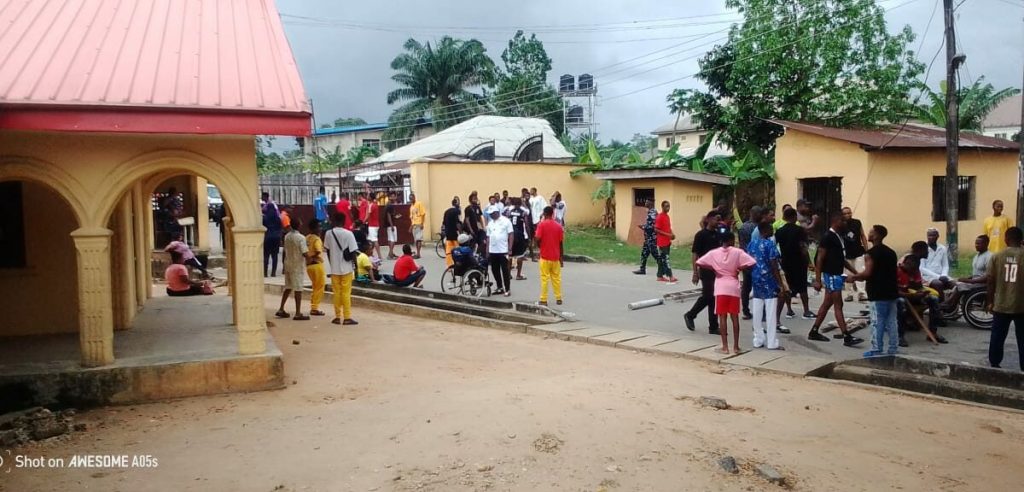The inaugural Niger Delta Sports Festival, held in Uyo, Akwa Ibom State, concluded on a discordant note as athletes staged a protest over unpaid allowances. The demonstration, which took place at the Cornelia Connelly College (CCC) camp, saw athletes from Cross River, Abia, Imo, and Ondo states barricading themselves within their hostel, preventing both entry and exit. The athletes expressed their frustration over the lack of transparency regarding the allowance amounts and the delayed disbursement, which they felt was disrespectful given their crucial role in the success of the games. Their grievances stemmed from the perceived unfair treatment, the absence of prior communication about the payment structure, and the financial strain of returning home empty-handed after participating in the event. The athletes, who expected the allowances to be paid during the festival and not after its conclusion, felt let down by the organizers, emphasizing their contributions and the expectations from their families back home.
The athletes’ discontent wasn’t limited to the delayed payments. Their complaints extended to the substandard living conditions they endured within the CCC camp throughout the festival. One athlete revealed that despite enduring the challenging living arrangements, rumors circulated about the Niger Delta Development Commission (NDDC), the festival’s sponsor, having already disbursed funds to a consultant for allowance payments, yet they hadn’t received anything. This further fueled their suspicions of mismanagement and lack of prioritization of their well-being. The lack of clear communication from the organizing committee exacerbated the situation, leaving the athletes feeling undervalued and disregarded despite their dedication and participation in the games.
Sir Itiakor Ikpokpo, the co-chairman of the Main Organizing Committee and consultant for the Niger Delta Sports Festival representing DUNAMIS ICON, addressed the issue, attributing the payment delay to technical difficulties with the Remita network system. He explained that the system, responsible for processing payments to over 4,000 athletes, was overloaded due to the late submission of account details by several states. Ikpokpo urged the athletes and officials to remain patient, assuring them that their allowances would be disbursed before the end of Tuesday. He emphasized that the NDDC had made adequate financial provisions for all allowances, thereby alleviating any concerns about the availability of funds.
Ikpokpo further elaborated on the payment process, stating that the large number of athletes requiring payment, coupled with the late submission of account details by some states, had created a bottleneck in the Remita system. He explained that once the account details were uploaded and verified, the payments would be processed, and athletes would begin receiving alerts. He expressed confidence that at least six states would receive their payments on Tuesday itself. Ikpokpo reiterated that the NDDC, as the primary sponsor, had allocated sufficient funds for all allowances, and there was no cause for alarm. He underscored the commitment to fulfilling their financial obligations to all participating athletes.
The protest highlighted the importance of transparent communication and timely disbursement of allowances in sporting events. The athletes’ frustration stemmed not only from the financial implications but also from the perceived lack of respect and recognition for their contributions. The incident underscored the need for organizers to prioritize athletes’ welfare and ensure smooth logistical arrangements, including timely payments, to avoid such disruptions. The athletes’ decision to stage a protest was a clear indication of their determination to be heard and to ensure that their rights were upheld.
The Niger Delta Sports Festival, intended to celebrate athleticism and promote regional unity, was unfortunately marred by this unfortunate incident. While the organizing committee attributed the payment delay to technical challenges, the athletes’ frustration and the ensuing protest pointed to a larger issue of communication and transparency. The incident served as a reminder of the crucial role that proper planning and communication play in ensuring the success of such events. It also highlighted the need for organizers to prioritize the welfare of athletes and to treat them with the respect and dignity they deserve. The hope is that lessons learned from this experience will lead to improved practices in future sporting events, ensuring that athletes are not left feeling undervalued or disregarded.


